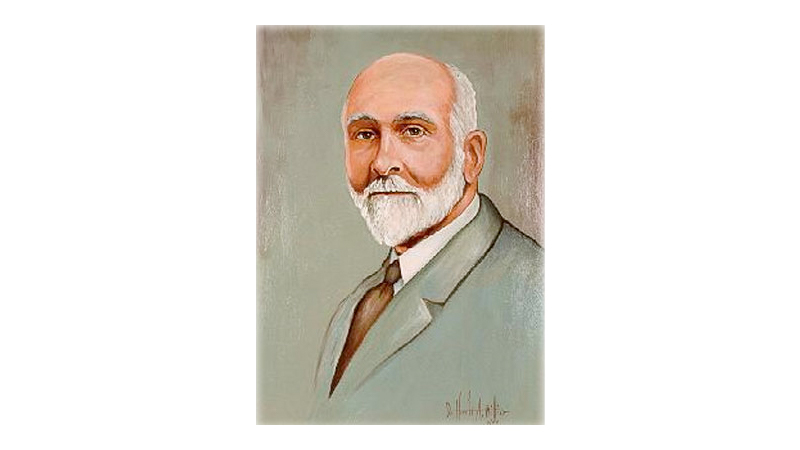

Jonathan Goforth came to Christ at age 18. While studying theology at Knox College, he often preached in Toronto’s slums and jails. In 1888 he and his bride of one year, Rosalind Bell Smith, became the first missionaries to China from the Canadian Presbyterian Church. They would serve there for the next 46 years.
God used Goforth to bring revivalism to the Chinese Church. In style and substance, he blazed the way for China’s great revivalist, Dr. Song Shangjie (宋尚节博士- John Sung), but his ministry did not start that way. Prior to 1906, Goforth worked in northern Henan as an evangelist and church planter. He and Rosalind practiced “open house” evangelism, and on some days as many as 2,000 would hear the gospel after getting a tour of a “foreign devil” house. Jonathan nearly lost his life in 1900 due to severe sword wounds during the Boxer Uprising.
The family returned to China in 1901 with a new ministry focus, itinerant evangelism. In 1907, Jonathan traveled to Korea and witnessed the revival sweeping that land. This ushered in the ministry as a revivalist that brought him the greatest immediate response of any missionary who worked in China. Goforth became convinced that his call was to revivalism. His preaching began to focus on the need for prayer, confession, repentance and reconciliation. His new work as a revivalist started in 1908 in the northeast, and in the next five years more than 13,000 came to Christ in China through his preaching.
By the 1920s, modernism began to sap the vitality of many mainstream denominations in the west. Goforth found himself criticized by some colleagues for his “fundamentalist” preaching on the reality of hell and judgment. He persevered, often preaching eight hours a day, sometimes to crowds numbering 25,000. By the time the Goforths left China in 1934, Jonathan was blind, and he died less than two years later. John Sung’s ministry as a “fundamentalist” revivalist was just starting.
Life with Jonathan was not easy. When they became engaged, he explained that he could not afford an engagement ring because he was using his money to purchase tracts. When he returned to China after the Boxer Uprising, Jonathan developed his plan for life as an itinerant evangelist. The family would spend each month in a different location, trusting God to raise up a faithful national worker who would stay behind in that location as they moved on to another. Rosalind, who had already buried four children in China, argued that more would die from the rigors of life in rural areas. She finally agreed with her husband that the children were safest in the center of God’s will. Rosalind was a gifted writer. Before her death in 1942, she wrote Goforth of China and her autobiography, Climbing: Memoirs of a Missionary’s Wife.
Some may think that receiving visitors is not real mission work, but I think it is. ..Often the people of a village will gather round me and say, ‘We were at your place and you showed us through your house, treating us like friends.’ Then they almost always bring me a chair to sit on, a table to lay my Bible on, and some tea.
From Jerusalem to Irian Jaya: A Biographical History of Christian Missions. Ruth A. Tucker. (Zondervan, 1983), pp. 190-91.